Performance Analysis of
Hashing with
Seperate Chaining
- Consider a
hash table using
seperate chaining:
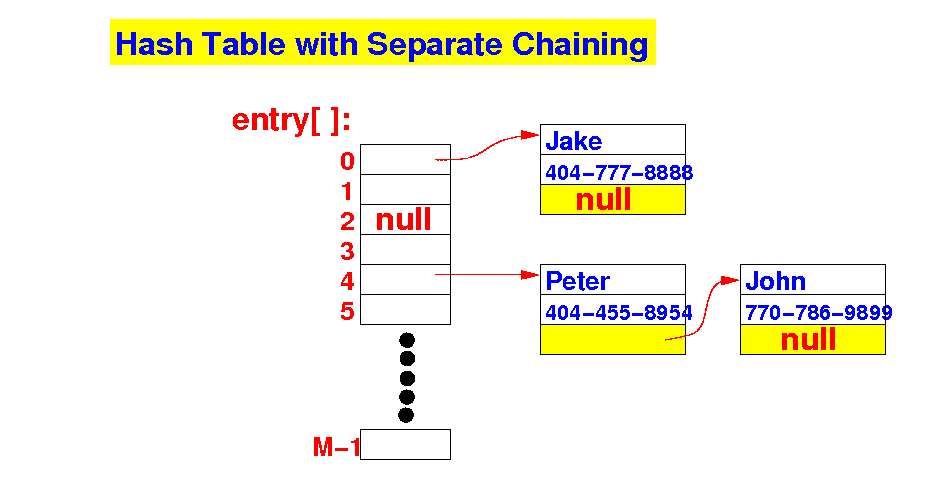
- Due to the
randomization of the
hash value:
- Some entries in the
hash table has
no keys
(e.g.:
entry[2])
- Some entries in the
hash table has
exactly 1 key
(e.g.:
entry[0])
- Some entries in the
hash table has
> 1 key
(e.g.:
entry[4])
|
|
Performance Analysis of
Hashing with
Seperate Chaining
- Operations on a
hash table
always uses
the hash value:

- The hash value will
select
one
specific hash bucket:
- The search key will be:
- Found in this
hash bucket
or
- Not found in this
hash bucket
|
|
|
Performance Analysis of
Hashing with
Seperate Chaining
- Therefore,
operations on a
hash table will
always
examine
all keys
in
one
search bucket:
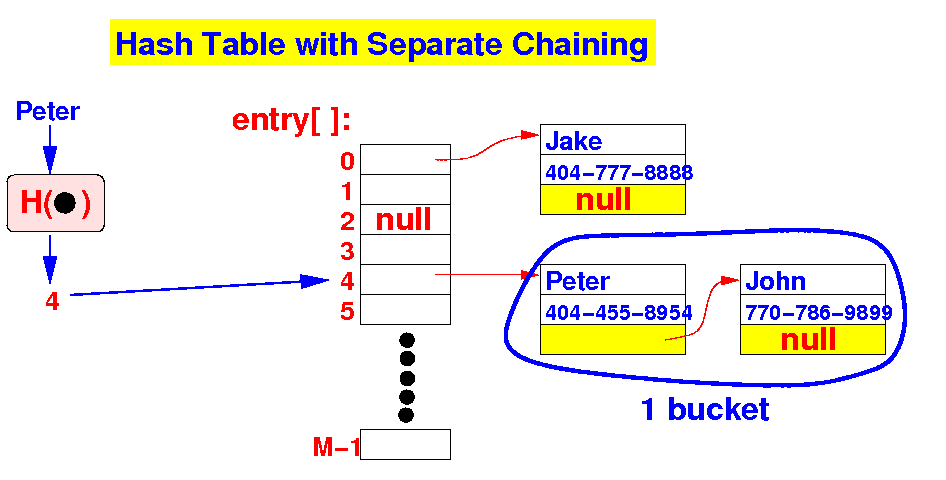
- Therefore, the
running time
of
operations on
a hash table is
equal to:
- The number of entries
stored inside
one bucket
in the hash table
|
-
Problem:
how many
entries will be stored inside
1 bucket ???
|
Performance Analysis of
Hashing with
Seperate Chaining
-
Problem:
how many
entries will be stored inside
1 bucket ???
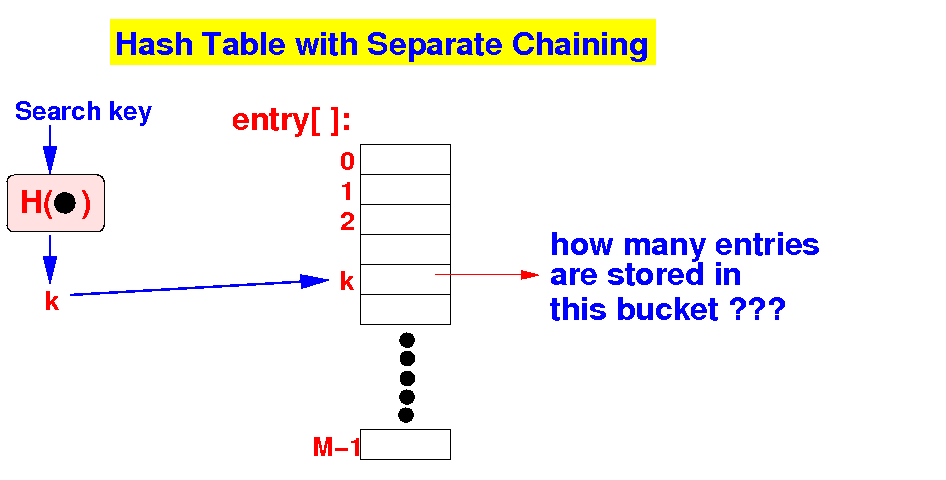
- Fact:
- A search key that has
hash value k is
stored in
the bucket k
|
-
Therefore:
# entries in
bucket k =
# keys where
H(key) = k
|
Performance Analysis of
Hashing with
Seperate Chaining
-
Estimating
the # entries stored
in a bucket:
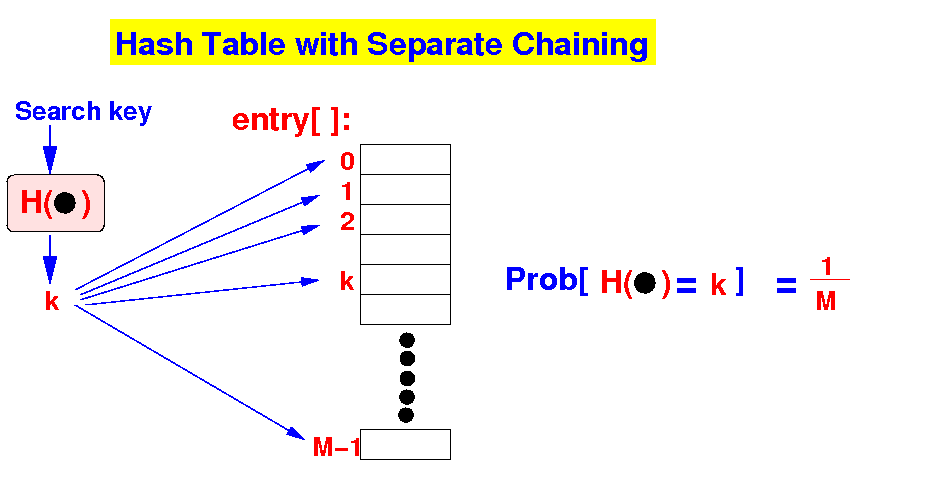
- Assumption:
uniformity
|
Performance Analysis of
Hashing with
Seperate Chaining
-
Suppose there are
a total of
n items/entries
hashed and
stored
in the hash table:
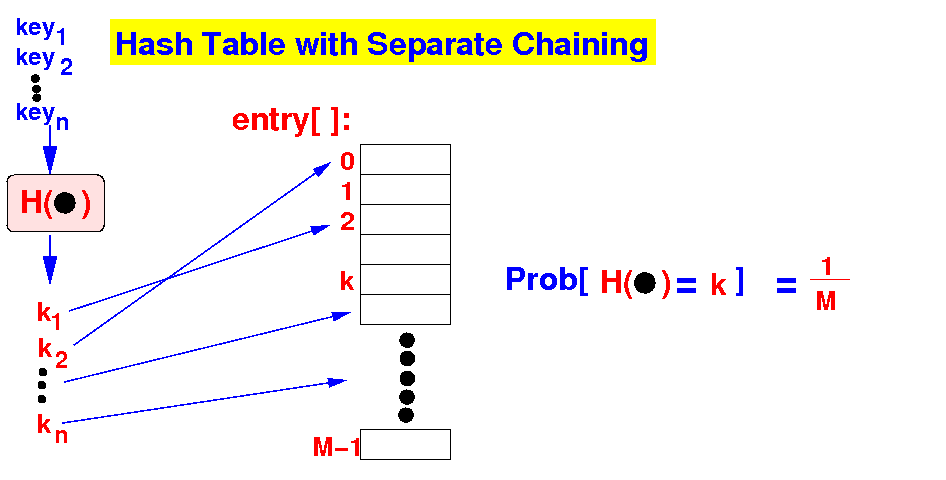
- According to the
Theory of Probability:
- The
average number of entries in
1 bucket =
n/M
Average running time for
hash operations =
n/M
|
❮
❯





